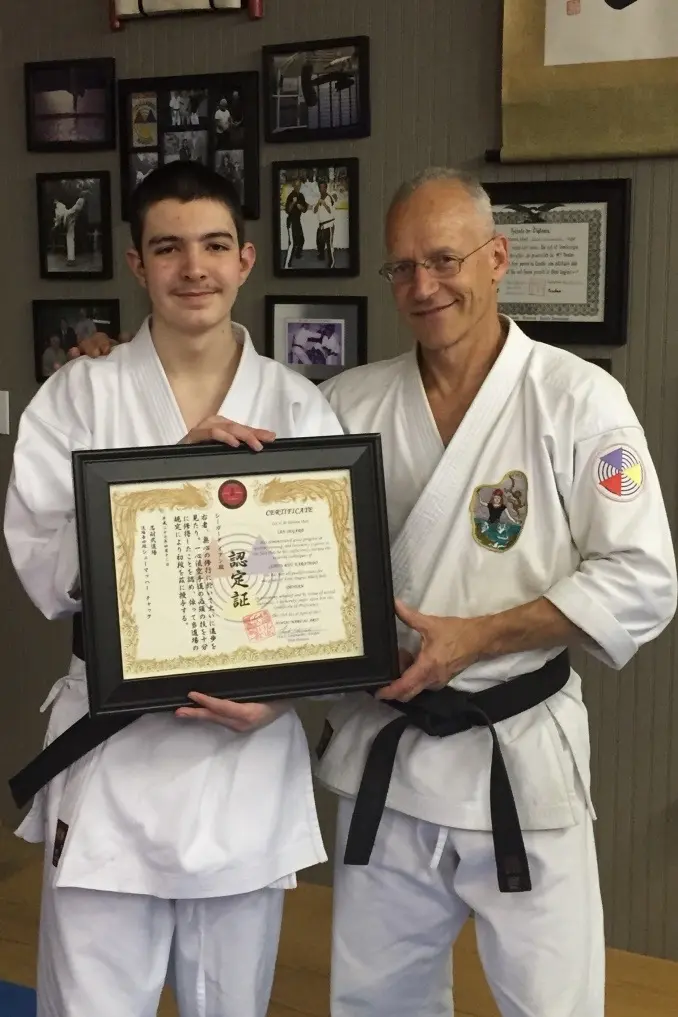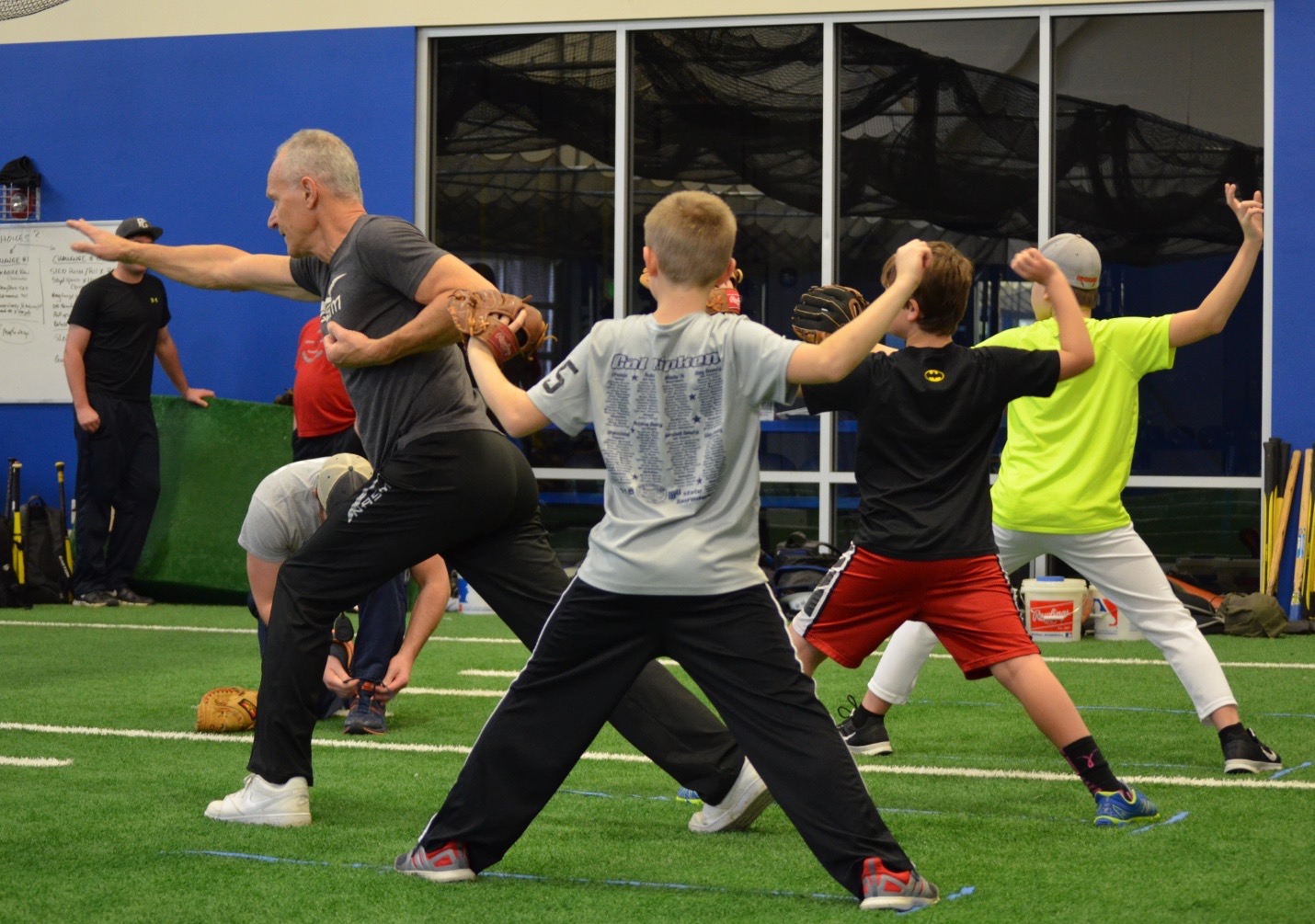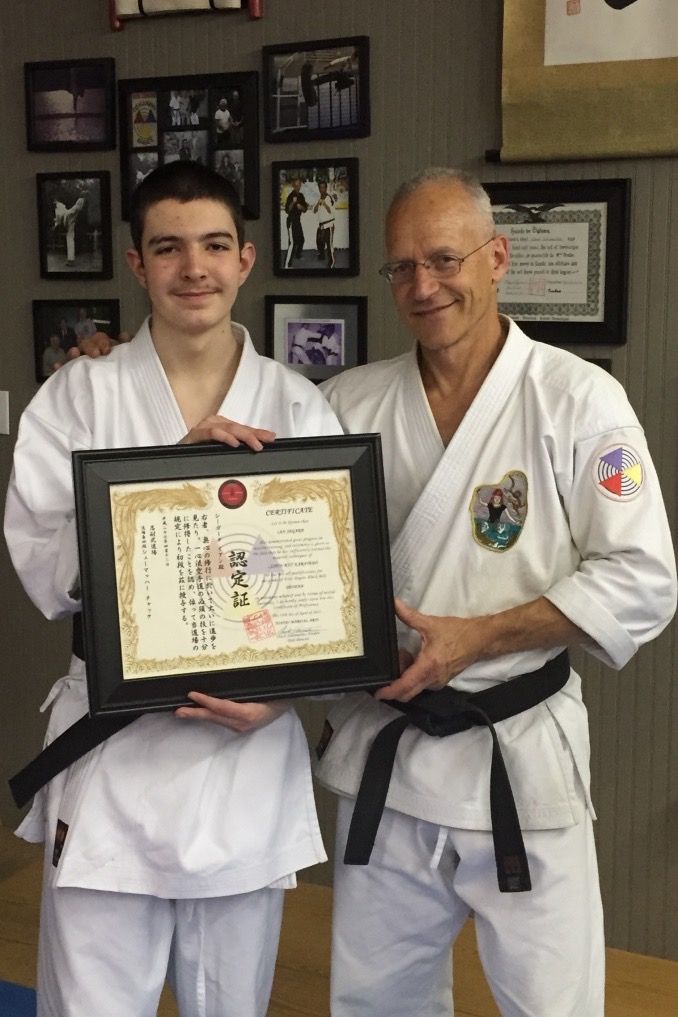
Jun 13, 2016 • 5 min read
On the Road to Success, Not Taking the Shortcut is the Shortcut
Posted in:
How long does it take to get a black belt in karate? Do you think my kid has a chance to play ball in high school, or college? These are questions I’ve been asked numerous times throughout my teaching and coaching career, and the answer is always the same: It depends.
 As our kids take their journey in sports, there’s a battle to be fought. The battle is within ourselves as we struggle with what we know to be just good parenting and the irresistible urge to push our kids to become superstars. It’s a battle that must be won for the sake of our kids.
As our kids take their journey in sports, there’s a battle to be fought. The battle is within ourselves as we struggle with what we know to be just good parenting and the irresistible urge to push our kids to become superstars. It’s a battle that must be won for the sake of our kids.
People reach their goals within different time frames. Interest level, natural ability, attitude and perspective all play a role in how long it takes. Finances and other responsibilities are also part of the equation. Regardless, staying on your true path and avoiding shortcuts is the quickest way to reach your destination. This takes patience, perseverance and endurance on the part of young athletes–and their parents.
Shortcuts can get you lost, while increased effort will reveal the way.
When we take shortcuts, it’s usually an attempt to speed up the process and put ourselves on the fast track to the future where we hope our pot of gold exists. But by focusing too much on the future, you cease to live in the moment, you lose your way and your training becomes erratic and disconnected. As time passes, very little progress is made, disappointment sets in and by seeking more shortcuts, your efforts become a cycle of failure.
So live in the moment day by day, week by week, month by month and year by year as you train, and you will reach your goals when you’re supposed to–when you’re ready. If you wish to reach your goals quicker, instead of seeking shortcuts, increase your effort.
People with a good work ethic are less likely to look for shortcuts.
Good work ethic leads to real success. Whether they’re seven or seventeen, all athletes should be taught this truth at appropriate levels according to their age. One of my biggest pet peeves in this area is, after a hitting lesson with me, the student heads for the door leaving his/her parents to pick up the gear and haul it out to the car. As long as a parent allows this lazy, disrespectful behavior, it will not only continue–it’ll probably get worse.
When parents don’t require good effort from their children, seeking shortcuts becomes their way.
We all want success, and given the option would no doubt choose the quickest, easiest route every time. But if the goal is high, this truth applies: Seeking shortcuts amounts to weak training with weak results. When striving for a black belt in karate or a college scholarship in baseball, my students find out real quick that there will be no talk of shortcuts. Staying on the path and being consistent in correct training is crucial for a person to achieve these very high goals.
We all need to find the balance.
When kids are young, we should make sure a proper balance is struck between teaching technique, competition levels and having fun. If we can strike this balance, kids will enjoy the process. But if we make kids specialize too soon and treat them as professionals, not only are we taking shortcuts, we are denying them a normal childhood experience.
By trying different things, a child’s true passions can be revealed. If allowed to follow their honest path with realistic expectations and without pressure to perform beyond their current ability, a young athlete will joyfully take the necessary steps toward reaching their goals. Thoughts of cutting corners will quietly disappear, skill will begin to develop and with encouragement, young athletes will come to understand the meaning of, “Not taking the shortcut, is the shortcut.”
If kids learn this valuable life lesson in sports, they will apply this philosophy to other areas of their life as well. It’s not all about winning–it’s about learning how to win!
Chuck Schumacher is the author of “How to Play Baseball: A Parents Role in Their Child’s Journey,” available at www.chuckschumacher.com (signed copy) or Amazon. Chuck has 20 years experience as a youth baseball coach and 40 years experience in martial arts. In 2006, he opened Chuck’s Gym in Franklin, Tenn., where he teaches baseball and Okinawan karate. You can contact Chuck at chucksgym@comcast.net.
